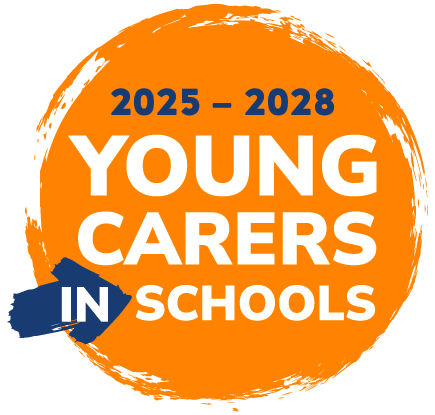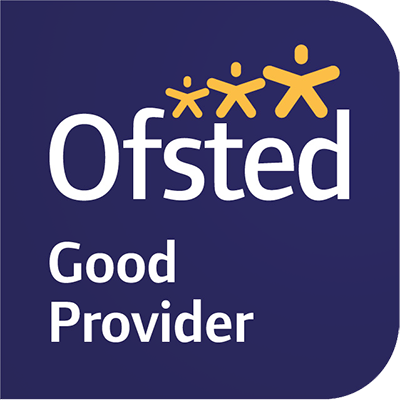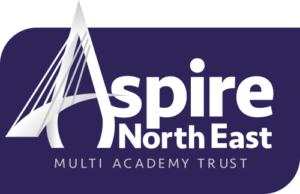English Curriculum Overview
Knowledge Organisers
-
• Y9 Literary Heritage -
• Year 7 Once • KS4 Power and Conflict Poetry
-
• Year 7 War Through Language • KS4 Literature Unseen Poetry
• KS4 Literature Power & Conflict Poetry
-
• Year 7 War Through Language • KS4 Literature Unseen Poetry
• KS4 Literature Power & Conflict Poetry
-
• Year 7 Weather & Setting • KS4 Literature Unseen Poetry
• KS4 Literature Power & Conflict Poetry
-
• Year 7 Weather & Setting • Year 7 Shakespeare’s Villans
-
- Aiming high, staying positive and resilience
- Communication skills (listening, speaking, presenting)
- Teamwork and problem solving
- Creativity and thinking skills
- Self-management and leadership
Key Stage 3 Curriculum
Our Key Stage 3 Curriculum:
At KS3, pupils have 7 curriculum lessons a fortnight as well as a weekly RISE reading lesson and a fortnightly Reading Plus session (wave 1 whole school reading intervention strategy).
To ensure our KS3 curriculum equips students with the knowledge they need to be successful at GCSE and beyond, we have identified core reading, writing and knowledge to be explicitly taught at key points during each year. These core skills have been traced from threads from both the NC and the GCSE specification to ensure that children are able to build on their starting points in order to achieve their end points. The key skills of language analysis, literature response and writing will be assessed at key points to give staff a holistic overview of how students perform in English across KS3. Knowledge assessments will also be sat at key points across KS3 to allow staff to adapt the curriculum to ensure pupils retain the key knowledge they need to be successful in KS4 and beyond.
Download the full policy at the link above for a full break down of learning for each Term.
Key Stage 4 Curriculum
Our Key Stage 4 Curriculum:
In Key Stage 4, we study the AQA specification which explores: Macbeth, A Christmas Carol, An Inspector Calls and the Power and Conflict Poetry anthology. Pupils are encouraged to think and speak analytically through challenging discourse and questioning. Pupils study the texts contextually discovering their relevance in today’s society by questioning how attitudes change in relation to gender, society and life- style. In Language, the department continuously updates and self-evaluates the resources we use in lessons so that reading and writing is meaningful and purposeful. Students access a range of fiction, non-fiction and literary non-fiction texts from the 19th, 20th and 21st century to extend skills developed in Key Stage 3. Writing opportunities are regular and pupils are taught to write clearly, coherently and accurately, using a range of sophisticated vocabulary and sentence structures and for different purposes and audiences. Spoken language is developed in all schemes of learning through discussion, debate and working collaboratively with peers in preparation for the spoken language component.
Download the full policy at the link above for a full break down of learning for each Term.
Academy Aim
Here at Sandhill View Academy, we aim to securely equip all of our students for life beyond school as successful, confident, responsible and respectful citizens. We believe that education provides the key to social mobility and our curriculum is designed to build strong foundations in the knowledge, understanding and skills which lead to academic and personal success. We want our students to enjoy the challenges that learning offers. Ultimately, we want students to ‘Know More, Do More and Go Further’ Our aims are underpinned by a culture of high aspirations. Through developing positive relationships, we work towards every individual having a strong belief in their own abilities so that they work hard, build resilience and achieve their very best.Intent
The curriculum includes formal teaching through subject areas, assemblies and extracurricular activities. We regularly review content to ensure we continue to meet our curriculum aims. The English curriculum is covered through schemes of work, lesson planning, homework, extended independent work, and extra-curricular activities. Our curriculum is planned to enable all students to develop: a knowledge, understanding and wide range of transferable literacy skills that promote and encourage a love of reading and a willingness to apply themselves to new challenges both across the curriculum and independently; a natural sense of curiosity and a drive to question, argue and persuade; the encouragement of creativity and risk taking; the reading of contemporary and literary texts that promote positive and healthy lifestyles, British values of mutual respect and a love of learning about other cultures and traditions; the encouragement of purposeful talk and attentive listening skills in collaborative work and a development of the emotional skills required to listen. Pupils are able to use their knowledge and skills in language and literature to open possibilities in the world of work and post 16 opportunities. Throughout our programmes of study, every attempt is made to make explicit links to careers and the world of work. In addition to subject specific links, we aim to explicitly reinforce the skills and aptitudes which employers say are important in the workplace:Sequence and Structure
Our curriculum is split into Key Stage 3 (years 7, 8 and 9) and Key Stage 4 (10 and 11). We have broadened KS3 to three years so that students have an opportunity to deepen knowledge and refine skills to prepare them for the demands of Key Stage 4. At the end of Year 9, pupils will complete a Language and Literature transition unit to support their conversion to KS4. We teach to termly and yearly end points so that knowledge and skills are continually and consistently developed and embedded through each scheme of learning.Literacy:
In addition to the literacy taught within the English curriculum, a bespoke, weekly reading lesson is offered by the English department in Year 7 and 8; this focuses on RISE: read, investigate, succeed, enjoy. These lessons aim to develop pupils’ love of reading by focusing on the reading and discussion of a class novel for enjoyment. We endeavour to select contemporary novels which pupils will find relatable, entertaining, and challenging. During these lessons, reading skills are taught explicitly and are reinforced and utilised across the curriculum. We know that students who read well achieve well. As such, all subject areas are committed to providing regular opportunities to read extensively. We have a different whole school reading focus each half term and this is reinforced and consolidated in RISE reading lessons. We also provide regular opportunities for students to read for pleasure and to receive small group interventions if their reading skills are lower than we would expect using Lexonic, Switch On and other reading interventionsSkills Builder
We are explicitly embedding transferable ‘Skills Builder’ skills such as problem solving, teamwork, creativity, aiming high, staying positive and leadership to prepare students for higher education and to equip them with employability skills for the future. This year in English we will focus on CREATIVITY in writing, reading responses and through oracy tasks, LEADERSHIP of independent learning and when working with others and STAYING POSITIVE to build resilience and determination when faced with challenge.
How does our Curriculum cater for students with SEND?
Sandhill View is an inclusive academy where every child is valued and respected. We are committed to the inclusion, progress and independence of all our students, including those with SEN. We work to support our students to make progress in their learning, their emotional and social development, and their independence. We actively work to support the learning and needs of all members of our community. A child or young person has SEN if they have a learning difficulty or disability which calls for special educational provision to be made that is additional to or different from that made generally for other children or young people of the same age. (CoP 2015, p16)
Teachers are responsible for the progress of ALL students in their class and high-quality teaching is carefully planned; this is the first step in supporting students who may have SEND. All students are challenged to do their absolute best and all students at the Academy are expected to make at least good progress. All students follow the same curriculum and are taught the same knowledge and skills however, for those students who with SEND, different texts or smaller chunks of text main be used. Furthermore, some students in KS3 may have an additional skill lesson and/or reading intervention depending on need and the impact of COVID. In addition, some students in Year 9 and Year 10 who require additional support will complete the AQA Step Up to English qualification to prepare them for the demands of GCSE English.
Further specific approaches that are used within the English curriculum area include:
- Seating to allow inclusion
- Differentiated activities to challenge and support in all lessons and in various parts of each lesson
- Resources that are accessible yet challenging
- Visual learning tools, writing frames and learning mats used to support where necessary e.g. SMART Reading and Writing
- Where appropriate, support from additional adults is planned to scaffold student learning
- Group work, discussion and a varied range of tasks to support different types of learners
- Class teacher / student communication
- Feedback that allows students to make progress, whether written, verbal, peer or whole class.
- Independent study / home learning
- Targeted intervention and support when required, including Lexia and Accelerated Reader.
How does our curriculum cater for disadvantaged students and those from minority groups?
As a school serving an area with high levels of deprivation, we work tirelessly to raise the attainment for all students and to close any gaps that exist due to social contexts. The deliberate allocation of funding and resources has ensured that attainment gaps are closing in our drive to ensure that all pupils are equally successful when they leave the Academy.
In English we cater for disadvantaged students by:
- Identifying disadvantaged students and ensuring they are placed in classrooms with careful consideration so that they receive high quality focus and support from staff and peers
- Providing targeted support for under-performing students during lesson time through a variety of strategies including targeted questions, live marking, scaffolds and writing frames
- Identifying barriers to learning and ensuring effective, timely and appropriate intervention is put in place
- In assessment, positive discrimination is used to ensure effective and detailed feedback is written in books.
- Ensuring there are opportunities for students to make use of resources and gain home learning support outside of lesson time using Teams
- Providing revision guides, theatre opportunities and other visits to develop cultural capital at no cost or a reduced cost to minimise the financial burden on families.
- Ensuring monitoring and evaluation processes are robust for these students and used to inform interventions.
Please see our separate Curriculum Improvement Plan for our most recent targets and interventions.
How do we make sure that our curriculum is implemented effectively?
- The English curriculum leader is responsible for designing the English curriculum and monitoring implementation.
- The subject leader’s monitoring is validated by senior leaders.
- Staff have regular access to professional development/training to ensure that curriculum requirements are met, and subject knowledge is developed.
- Effective assessment informs staff about areas in which interventions are required. These interventions are delivered during curriculum time to enhance pupils’ capacity to access the full curriculum.
- Curriculum resources are selected carefully and reviewed regularly.
- Assessments are designed thoughtfully to assess student progress, long term knowledge retrieval and also to shape future learning.
- Assessments are checked for reliability within departments and across the Trust.
Every year, the English department meets to discuss, evaluate and adapt the KS3 and 4 curriculums based upon data, pupil voice, across trust discussions and to ensure it remains relevant, current and promotes critical thinking about prominent issues. Key roles are allocated to experienced members of staff to ensure the monitoring of the curriculum is implemented correctly and effectively.
The Assistant Principal and subject leaders have clear roles and responsibilities to carry out curriculum design and delivery. They ensure that the curriculum within their key stage expertise has sufficient depth and coverage of knowledge in the subjects. Assessment timelines are created so that enough time is allocated to ensure there is a breadth and depth of a topic and LPs intervene where necessary. A mastery approach is used. These are shared across the Academy trust. To ensure consistency, a weekly CPD programme is planned and delivered by Lead Practitioners, senior examiners/examiners and TLR holders within the department where training focuses on improving subject knowledge and the pedagogy of striding and exploring English.
How do we make sure our curriculum is having the desired impact?
- Examination results analysis and evaluation, reported to the senior leaders and the local governing body to ensure challenge
- Termly assessments-analysis and evaluation meetings
- Lesson observations
- Learning walks for KS3 and KS4 based on departmental priorities
- Work samples for each year group across the trust cross referenced against milestone assessment end points
- Regular feedback from Teaching Staff during department meetings
- Regular feedback from Middle Leaders during curriculum meetings
- Pupil surveys
- Parental feedback
- External reviews and evaluations





